The Best Undisputed Truth Songs: Funky Gems Worth Revisiting
The group had many phases, reflecting producer Norman Whitfield’s musical journey. Dive into an underappreciated catalog of funk.
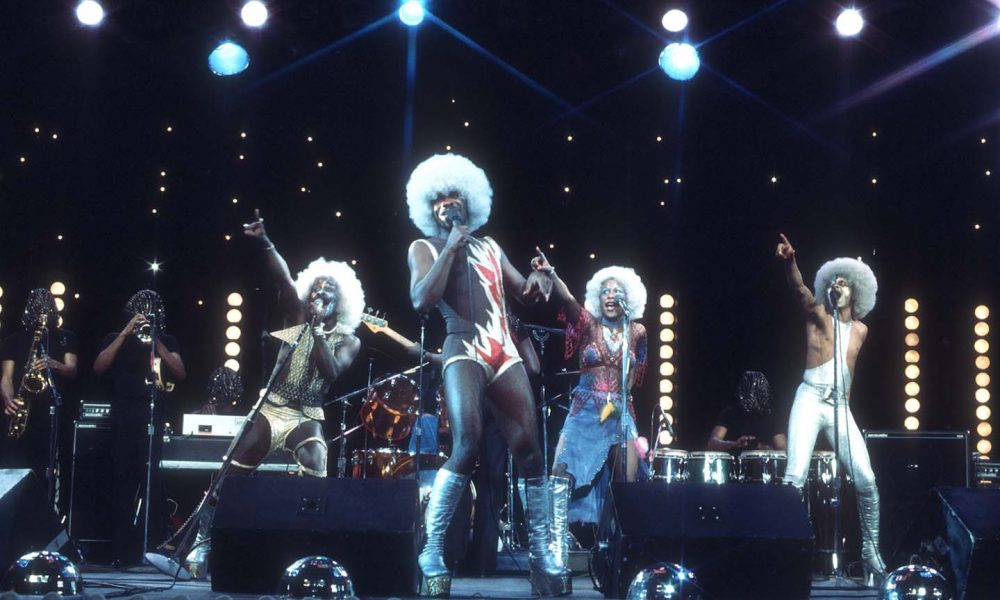
The Sound of Young America may have been Motown Records’ boastful tagline, but if you can back them up, boasts are just truths spoken loudly. And the truth was that Motown had its finger on the pulse. At least for a while. By the middle of the 60s, music was shifting. And so was the world. The Motown Sound may have been what put them on the map, but the geography was changing in real-time. One of the key people at Motown that heard this change loud and clear was producer Norman Whitfield. He understood that Motown needed to change, needed to meet listeners where they were, and where they were going. He began to blend the sounds of classic Motown with the era’s psychedelic soul sounds, leading to huge hits with The Temptations like “Psychedelic Shack” and “Cloud Nine.” But Whitfield knew he could go even further with a new group, one unconstrained by the history of the imprint. Enter The Undisputed Truth.
Whitfield’s plan was to write, produce, select songs, craft an image, and stay true to his vision. And, for brief moments, the vision for The Undisputed Truth shone brightly, even if they never quite reached the heights that anyone expected. Indeed, despite releasing eight albums, The Undisputed Truth still had a hint of the underground in them (as underground as a Motown act can be). Their under-the-radar career path, however, means that they are a group ripe for rediscovery.
Listen to the best of The Undisputed Truth now.
Beginnings
The Undisputed Truth were formed in 1970 with singers Billie Rae Calvin, Brenda Joyce Evans, and Joe Harris. Calvin and Evans had worked together in a vocal group called The Delicates, while Harris had been with The Fabulous Peps. Neither group was setting the charts on fire, but when Motown artist Bobby Taylor saw The Delicates, their fortunes changed. The group was invited to join Motown Records, initially working as background singers. Detroit native Harris rounded out the original trio. Whitfield, who’d been shaping The Temptations into his vision, now had another group to mold.
The Undisputed Truth first hit with a cover of The Temptations’ “Smiling Faces Sometimes.” As Joe Harris explained Norman Whitfield’s thinking to Blues & Soul: “I think it’s important to realise that every time he does recut a song, he does it totally different. He’s the kind of guy that can come up with four different ways of saying something.” It’s true with this one. “Smiling Faces Sometimes” dials up the paranoia of the original, adding a kind of muted suspicion, a fuzzy, light-psych feel that would be part of the group’s sound for albums to come.
Though their self-titled debut album only hints at what’s to come, there might be no better way to get the feel of what Whitfield’s plan was than their version of the Whitfield-penned “I Heard Through the Grapevine.” Recorded by at least five Motown artists, this song works almost like a musical control for the great Motown experiment. It can be like Marvin Gaye’s mid-tempo, string-heavy plea. Or the danceable funk of Gladys Knight and the Pips’ version. And in the case of the Undisputed Truth, a slower funk-rock with a psychedelic guitar wail punctuating the verses. It feels like Whitfield’s playground as he experiments with instrumentation and voices.
The group’s second album, Face to Face With the Truth, also had a tracklist that looked a bit like a Motown’s greatest hits. But have a listen to “Ungena Za Ulimwengu (Unite The World),” in all of its distorted echo-y glory. Like “Smiling Faces,” this one has a haunting undercurrent, a trippy dissonance between the lyrics about unity (including a short medley of “Friendship Train”) and the music’s dark uncertainty.
Whitfield never hid that his psych-soul turn was heavily influenced by Sly and the Family Stone (though many accounts say that he wasn’t initially sold on the concept, thinking it was just a fad). “What It Is?” has the essence of Sly, but as Whitfield told Blues & Soul in 1977, it was more than Sly Stone that brought this side out of him, “To me, it was a case of the Black man coming forth from the sound that had been given to him. It was a case of the Black man doing his own thing for the first time and I was proud to be part of it.”
A new era
The Undisputed Truth’s third album, Law of the Land, would be the last with the original lineup. The new album had a song that the group thought would finally take them out of the shadows of The Temptations and put them on top of the charts: “Papa Was a Rollin’ Stone.” Calvin, like the other members, was often frustrated by being seen as not much more than Whitfield’s pet project and Temptation song remake artists. As the album came out, he told the press, “Our next album is full of completely new songs… I hope that now we can forget about comparisons with The Temptations and any other groups.” Unfortunately, their version of the song reached number 63 on the pop charts and 24 on the R&B, and was eclipsed by The Temptations version just a few months later. But the album has some gems that keep the group solidly in the psychedelic soul vein, namely “Mama I Gotta Brand New Thing (Don’t Say No)” and their version of Traffic’s “Feelin’ Alright,” later recorded by Joe Cocker.
Change was coming, though. Law of the Land failed to produce any big hits, Calvin soon left the group, replaced by Diana Evans, who also left soon after joining. Rather than find another replacement for the trio, Whitfield envisioned something different. As Graham Betts writes in Motown Encyclopedia, “with the opportunity to pretty much recreate the group, Norman decided to expand.” The trio became a quintet with the addition of Tyrone Douglas, Tyrone Barkley, and Virginia McDonald. The next album, 1974’s Down to Earth, was a transitional record, leading to a radical shift.
The cosmic era
In the mid-1970s, soul went to space. The psych-soul of just a few years earlier was giving way to the funk. In his book Funk: The Music, the People, and the Rhythm of the One, Rickey Vincent describes it as the “James Brown Bomb,” an undeniable shift in how music was played and felt. Funk, Vincent writes, “became an essential aspect of any black artist’s ability to reach the people in the 1970s.” But while James Brown detonated the funk bomb, there was one group of the era that personified the funk: Parliament. They were flying their mothership to some whole other dimension, and Whitfield and The Undisputed Truth followed suit. This was a cosmic change, not just in how the music sounded, but in how the performers looked.
“We’re very heavily involved in a complete concept change in terms of music,” Joe Harris told Blues & Soul in 1975. “We’ve been into this cosmic thing for a long time and our albums have always had cosmic sleeves to them.” Harris and the group delivered on that promise with their next three albums (Cosmic Truth, Higher Than High, and Method to the Madness). “They were now heavily made up, wearing giant white Afro wigs and heavy face-paint, something of a funky looking Kiss,” wrote Betts in Motown Encyclopedia. A change in appearance and a slight change in line-up with the addition of Calvin ‘Dhaak’ Stephenson, and the group was ready to launch.
Goodbye, Motown
Not only did the mid-70s bring a change to the group artistically, it also brought a label change. Whitfield was frustrated with the Motown structure, and how his projects weren’t getting the support he felt they needed. Whitfield left the label in 1975, and took The Undisputed Truth with him to record on his own Whitfield Records. The Undisputed Truth’s first Whitfield-era record was 1975’s Method to the Madness. The alien-funk intro “Cosmic Contact” makes it seem like this is another funk entry. And it is, in a way. The space funk sound was still there, but disco was fast on its heels, and this album shows the relationship between the two genres. They aren’t at odds, but in conversation, with one voice sometimes speaking over the other. Whitfield was surprised at the disco love the album got, “It was never intended to even be a disco record.” Songs like “You + Me = Love” and “Let’s Go Down to the Disco” make that hard to believe, but there’s still a solid funk base, and even a hint of their psych-soul past. There’s also another new member: Taka Boom, Chaka Khan’s little sister and vocalist on Method. A final album followed, 1979’s Smokin’, but it failed to bother the charts in a meaningful way.
The Undisputed Truth were always good, always underrated, but it also feels like, for most of their career, they were just a step behind. Or ahead. The last two albums from the group had elements of what would become Whitfield’s future hit project: Rose Royce. It may be that lack of an identifiable Undisputed Truth sound that kept the group under the radar, even during their most productive periods. When the last of the original members, Joe Harris, left in 1979, it marked the end for the group.
In a 2001 Goldmine article reflecting on the group’s legacy, journalist Dave Thompson, like so many before him, lamented the lack of recognition for the Undisputed Truth. What could it have been if just one more song had topped the charts? If just one Motown quality control listening session had lifted just one more of their album tracks into pop classic status? “Backstage at Motown,” Thompson writes. “The hierarchy was strangely unimpressed. Promotion was limited and advertising was scant.” But there’s something there, then and now. As Thompson continues, “it isn’t simply the music that explodes from the grooves. It is a revolution, and it should have been televised.”


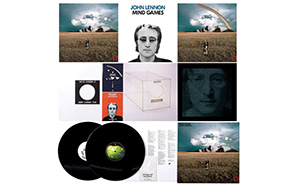
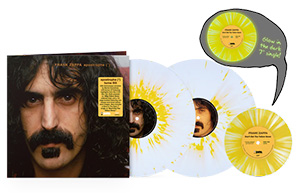

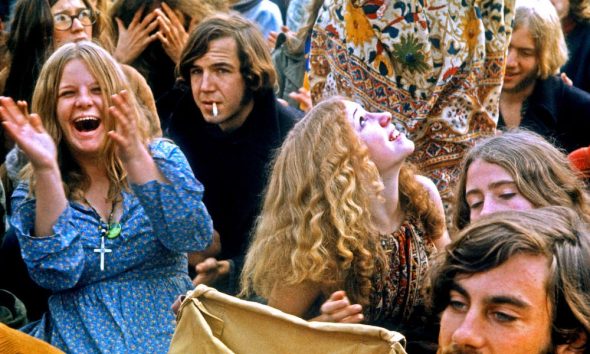
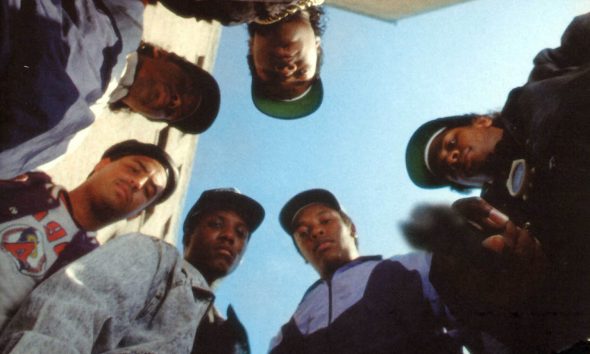

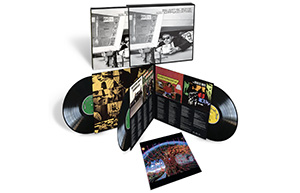

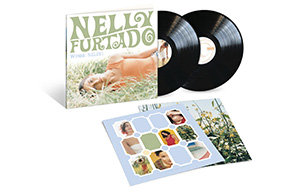
Frank Reynolds
September 29, 2023 at 4:33 pm
This group deserved more recognition. The Cosmic Truth was their funkiest album.